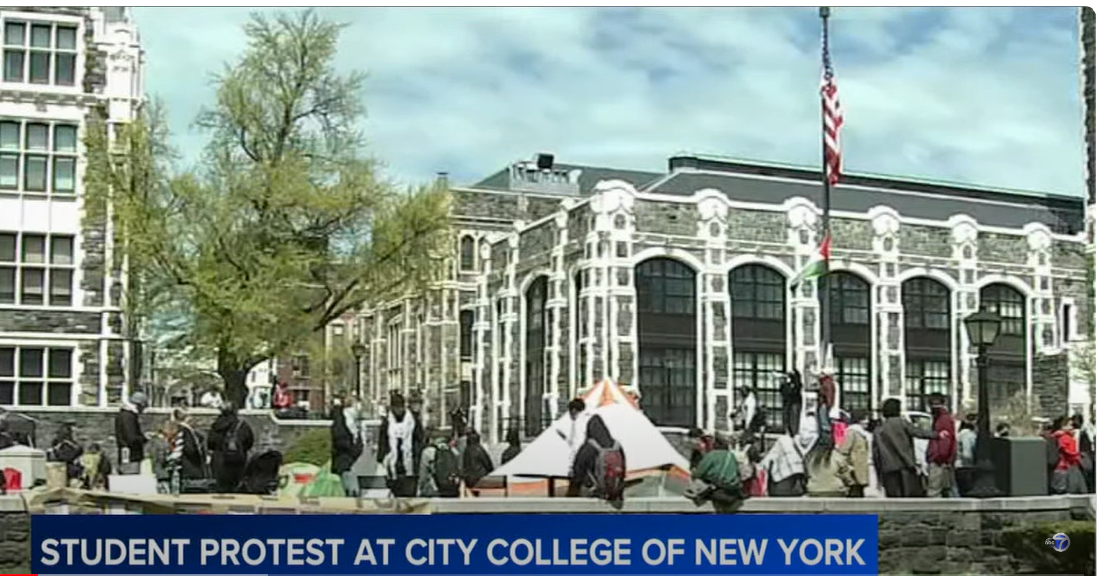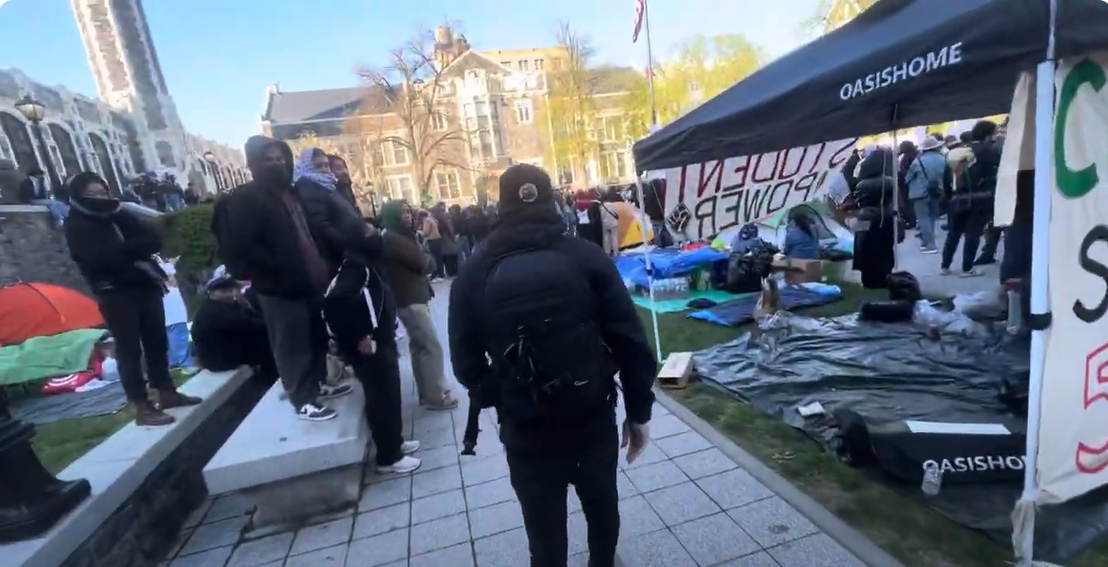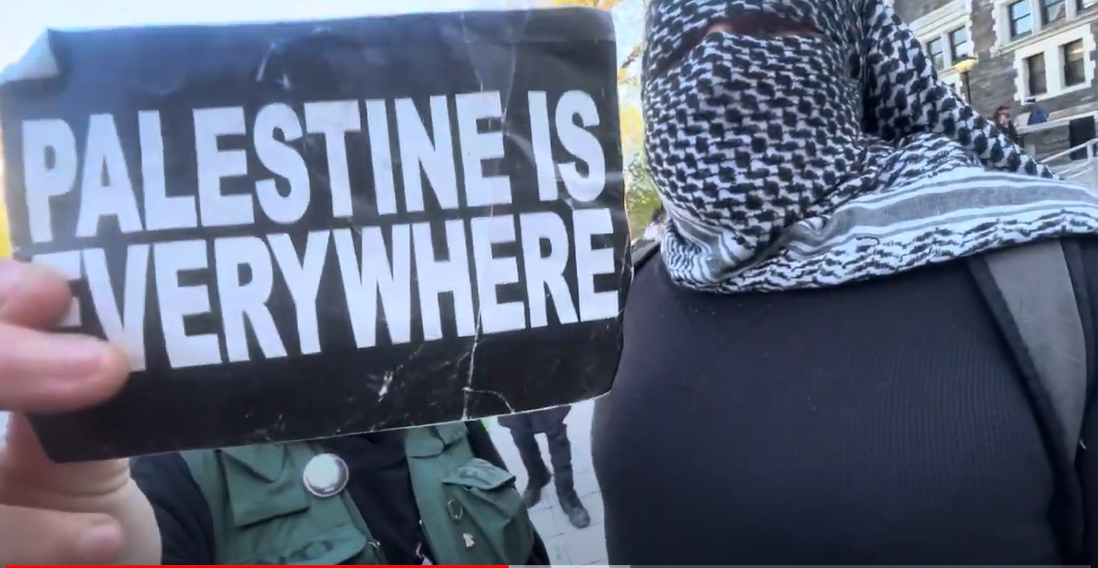The current wave of pro-Palestinian student protests is spreading like wildfire, evoking a similar conflagration in 1968 when the subject was another war being fought halfway across the world, in Vietnam.
Students at the Harlem Hamilton Heights campus of City College of the City of New York, popularly known as CCNY, have set up an encampment a stone’s throw away from the neighboring Columbia University campus, where the protests began in New York. They have thus joined NYU and Columbia, and universities around the country to protest the Israel-Hamas war.
On Thursday, the students, who are part of the CUNY system, shouted out their support with signs and banners that said, “solidarity encampment” and “end colonialism” near the impressive neo-Gothic Baskerville Hall. One sign displayed a list of demands, including CUNY’s divestment and boycott from Israel, under the heading “Viva Palestinia.”

CCNY is not an elite institution like Columbia and NYU, it is a public college, part of the largest such system in the nation, but they have a proud history and tradition as “the poor man’s Harvard.” This campus protest is open to all; whether registered at CCNY or not, they welcome the hundreds of thousands registered at other CUNY campuses to join them and make their voices heard.
The demographic profile of CUNY students does not resemble that of the other two universities; generally speaking, CUNY students come from blue collar families, and frequently are the first in their families to attend college. But they are industrious and value education as the path to the fulfillment of their life’s ambitions. Often immigrants, they believe in the cliché of the “American Dream”, they therefore empathize with marginalized people—like the harried population of Gaza– in a way that many at Columbia and NYU cannot imagine. Many CUNY students have lived the anxieties of violence, poverty and displacement, coming from countries where war and oppression are not tragedies that are “foreign”.
The CUNY students said that like the other encampments at local universities, they’re demanding that CUNY divest from companies with ties to Israel. They’re also asking CUNY officials to cancel any upcoming trips to the country and protect students involved in the demonstrations.
“There is obvious documentation of CUNY investing money, millions and millions of dollars, in companies that are investing in Israeli weaponry and Israeli aircraft — for example, Boeing,” said Hunter College student Sara Abdulaziz. “We are here to show people that we are taking back CUNY. We are here to take it back for Palestine, we are here to take it back for students.”

The protest’s supporters included a contingent of Hasidic Jews.
Rabbi Dovid Feldman, who is not affiliated with CUNY but was there as spokesperson for Jews United Against Zionism, underscored a crucial distinction that is wantonly overlooked by many counter-protestors and the media who equate anti-Zionism with antisemitism: “We are disturbed when these students are being silenced, especially with this false accusation of antisemitism. This is ridiculous how unjustly people are being systematically silenced.”
College spokesperson Jay Mwamba wrote in an emailed statement that any protest must remain “peaceful, respectful, nonthreatening, and devoid of any hatred or intimidation.”
Currently CUNY colleges are on spring break, so it remains to be seen if the demonstrations pick up more momentum once all the students return to campus or the pressure valve of anger has released enough steam.
An NYPD spokesperson said there are officers in the area and the department is monitoring the encampment to ensure it remains safe.












